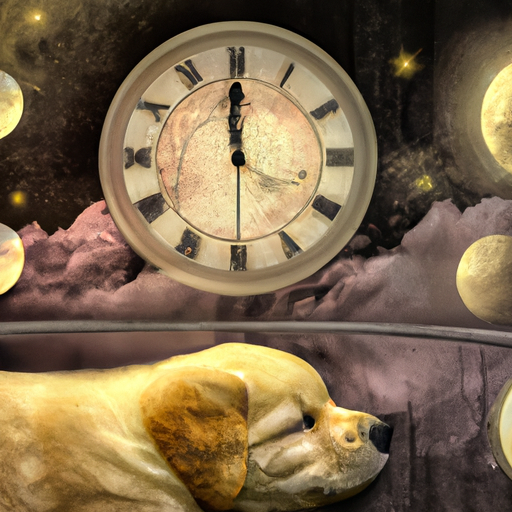In your role as a caregiver, you have a lot of responsibilities. One of those is understanding the sleep patterns of your puppies. With this guide, you will learn about the sleep habits of puppies, why sleep is so important for them, and how you can help regulate their sleep schedule.
Understanding Puppy Sleep
Just as with humans, sleep plays a crucial role in a puppy’s development. In fact, puppies sleep much more than adult dogs, often sleeping up to 18 to 20 hours a day in their first few weeks.
- 0-3 weeks: Newborn puppies tend to sleep almost the entire day, with periods of activity limited to eating and brief periods of active play.
- 3-12 weeks: As they grow older, puppies will gradually start to sleep less during the day and more at night. However, they still need around 15 to 20 hours of sleep per day.
- 3-6 months: During this period, a puppy’s sleep needs will decrease slightly, but they will still require about 14 to 18 hours of sleep a day.
The Importance of Sleep for Puppies
Sleep is more than just a rest period for puppies. It is a critical component of their growth and development.
- Physical Development: During sleep, a puppy’s body works to repair muscle, bone, and tissue growth that occurs during play.
- Brain Development: While sleeping, puppies process and store all the information they have learned during their waking hours.
- Immune System: Quality sleep helps boost a puppy’s immune system, helping them fight off potential illnesses.
Factors That Affect Puppy Sleep
Several factors can influence how much a puppy sleeps. These include:
- Age: Younger puppies sleep more than older ones.
- Activity Levels: Active puppies need more sleep to recover from their physical exertion.
- Health: Healthy puppies sleep less than those who are unwell.
Creating a Sleep-Friendly Environment
Ensuring your puppy has a comfortable, quiet place to sleep can make a significant difference in their sleep quality. Here are some tips:
- Provide a comfortable bed or crate for your puppy to sleep in.
- Keep the sleeping area quiet and dark.
- Maintain a consistent sleep schedule.
Troubleshooting Puppy Sleep Problems
If your puppy is having trouble sleeping, there could be several possible causes. They might be teething, feeling unwell, or suffering from separation anxiety.
| Symptoms | Possible Causes |
|---|---|
| Restlessness | Teething, discomfort |
| Frequent waking | Illness, need for bathroom |
| Whining or crying | Separation anxiety |
Helping Your Puppy Sleep Through the Night
Here are some tips to help your puppy sleep through the night:
- Keep them active during the day.
- Establish a bedtime routine.
- Avoid feeding them right before bedtime.
Frequently Asked Questions
Why does my puppy sleep so much?
Puppies have a lot of growing and learning to do, which requires a lot of energy. Therefore, they need more sleep than adult dogs.
Is it normal for puppies to sleep all day?
Yes, especially for newborn puppies. However, as they grow older, they will start to sleep less during the day and more at night.
What if my puppy isn’t sleeping enough?
If your puppy isn’t sleeping enough, it could be due to several issues, such as illness or discomfort. You should consult your vet if you’re concerned about your puppy’s sleep habits.
How can I ensure my puppy sleeps well?
Ensure your puppy has a comfortable, quiet place to sleep. Also, keep them active during the day and establish a bedtime routine.
Your role as a caregiver for your puppy is crucial. Understanding their sleeping habits and needs can help you ensure they grow up healthy and happy. Remember, every puppy is unique, so be patient and attentive to their individual needs.



